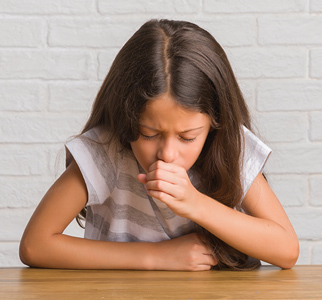Is It Just a Cough—Or Childhood Asthma?
A cough here, a wheeze there. Most children have respiratory illnesses every now and then. But for one in 12 kids, these symptoms are a sign of something more significant: childhood asthma.

Unlike short-term bugs, asthma is a chronic inflammatory condition. In children who have it, their airways swell and narrow from time to time, making breathing difficult. The condition typically lasts a lifetime, but with proper management, it doesn’t have to limit your child’s life.
Is my child at risk?
Scientists are still untangling asthma’s causes. It seems to start when the body is exposed to an allergen—for instance, ragweed or pet dander. Some people’s immune systems react strongly to certain allergens and go into overdrive, causing the lining of the airways to swell and the muscles around them to tighten.
Kids are at higher risk for asthma if they:
Have a parent or other family member with asthma or allergies
Have allergies themselves, including skin reactions or food allergies
Have frequent respiratory infections
Were exposed to secondhand smoke before and/or after birth
Pick up the patterns
One way to tell the difference between asthma and other illnesses? Monitor and track your child’s symptoms over time.
When symptoms such as coughing, wheezing, and shortness of breath are linked to asthma, they usually follow a pattern. They tend to flare up:
At night, causing trouble sleeping
Early in the morning
During exercise
After exertion, laughing, or crying
In cold air
Often, kids with asthma develop symptoms before 5 years of age. But the condition can be difficult to diagnose, in part because kids can’t explain how they’re feeling. So information from parents becomes critical. If you notice troublesome trends, tell your child’s healthcare provider, or an allergist or immunologist. Any of these experts can diagnose and treat the disease.
Making the diagnosis
As part of the exam, the healthcare provider will test your child’s airway function. This may involve blowing in and out through a tube. Since babies and toddlers can’t always do this, the provider may instead start asthma treatment to see how your child responds.
Asthma can’t be cured. But with medicine and careful planning, it can be managed. Doing so can help your child breathe easier today and prevent long-term lung damage and other complications in the future.
Connect with us:
Download our App: